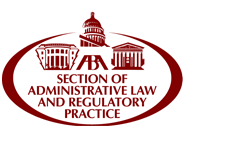Article Title
Calibrating Chevron for Preemption
Volume
63
Issue
4
First Page
667
Abstract
For years now, courts and commentators have struggled to reconcile the presumption against preemption—the interpretive canon that presumes against federal incursion into areas of traditional state sovereignty—with the Court’s Chevron doctrine, which instructs courts to defer to reasonable agency interpretations of ambiguous federal statutes. Where Congress’s preemptive intent is ambiguous, should courts defer to agency interpretations under Chevron, or do preemption’s federalism implications demand a less deferential approach? Despite numerous opportunities, the Supreme Court has failed to clearly define the level of deference due to preemptive agency interpretations. In some cases the Court appears quite deferential and in others almost entirely nondeferential.
Academic treatment of the Court’s jurisprudence has been rightly critical. The Court’s unpredictable approach sows uncertainty among regulated parties, the lower courts, and the agencies themselves. As alternatives to the Court’s current case-by-case approach, commentators have advocated a variety of more rule-like regimes: universal nondeference, universal Chevron deference, and, most commonly, universal Skidmore deference. Advocates of across-the-board nondeference point to the lack of political and procedural safeguards protecting states from agency-initiated preemption. Those advocating across-the-board Chevron deference, on the other hand, point to agencies’ technical expertise on preemption questions and the availability of the Mead doctrine as a screen to protect the values of federalism where agencies act other than with the force of law. Finally, a third set of commentators attempts to reconcile these competing approaches by adopting a middling standard of Skidmore deference based on the thoroughness and persuasiveness of an agency’s judgment in a particular case.
Thus far, none of these approaches have tempted the Court. Instead, the Court continues to apply deference haphazardly from case to case with no clearly articulated reason for its variation. A close study of the cases, however, reveals both why the Court has been reluctant to adopt any of the proposed across-the-board standards of deference and what an appropriate framework for agency deference might look like. The Court’s inconsistent decisionmaking stems from its high regard for congressional intent when considering questions that implicate federalism. Chevron and the presumption against preemption provide conflicting indicia of congressional intent, and rather than universalize one principle at the expense of the other, the Court has applied deference selectively depending on its case-specific analysis of congressional intent. When the Court thinks it reasonable to presume delegation of preemptive authority, it is quite deferential to agency views. But, when it thinks congressional intent to delegate is unlikely, it accords little deference to preemptive agency interpretations.
Critics of the Court’s Chevron–preemption jurisprudence correctly note its major flaw—its inconsistency—but they fail to recognize its purpose and benefits. By looking to congressional intent rather than universalizing a sometimes-inapplicable, across-the-board rule, the Court respects congressional intent where it intends to delegate preemptive authority, while protecting state sovereignty where it does not. Of course, the Court’s good intentions do not excuse the approach’s unpredictability. A superior approach would package the Court’s concern for state sovereignty and congressional intent into a predictable and easily administrable bright-line rule.
The Court’s existing doctrinal distinction between express and implied preemption points to a possible solution. In express preemption cases, the Court does not need to enforce federalism values through the presumption against preemption because Congress has spoken clearly in favor of displacing state law. And if the scope of preemption is ambiguous, Chevron’s presumption of delegation through ambiguity to agency expertise is entirely reasonable. Agencies are quite competent to decide the proper scope of preemption once Congress has duly authorized it. On the other hand, where Congress has not spoken clearly through an express preemption clause, and the question is whether there is to be any preemption at all, Chevron’s rationale is particularly weak. Agencies are least competent when considering unbounded questions of federal–state power allocation, and Congress is unlikely to delegate authority of this sort.
Given the waxing and waning force of Chevron’s rationale across cases, the Court should adopt a rule of variable deference that accords full Chevron-style deference to agency interpretations of ambiguously broad express preemption clauses and withholds deference altogether where Congress is silent regarding preemption. Such a rule, unlike any of the proposed across-the-board regimes, would recognize the factors that underlie the Court’s unpredictable case-by-case approach—respect for state sovereignty and congressional intent—while providing the rule-like certainty demanded by the Court’s critics.
